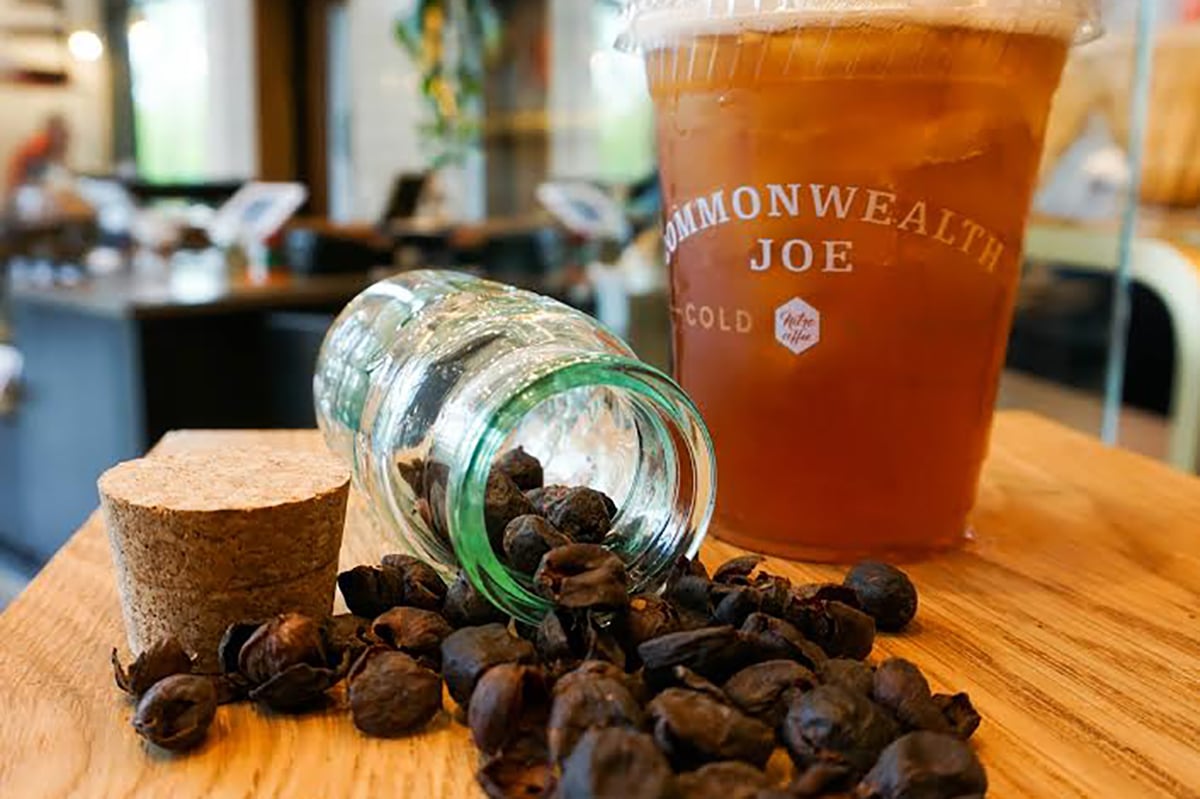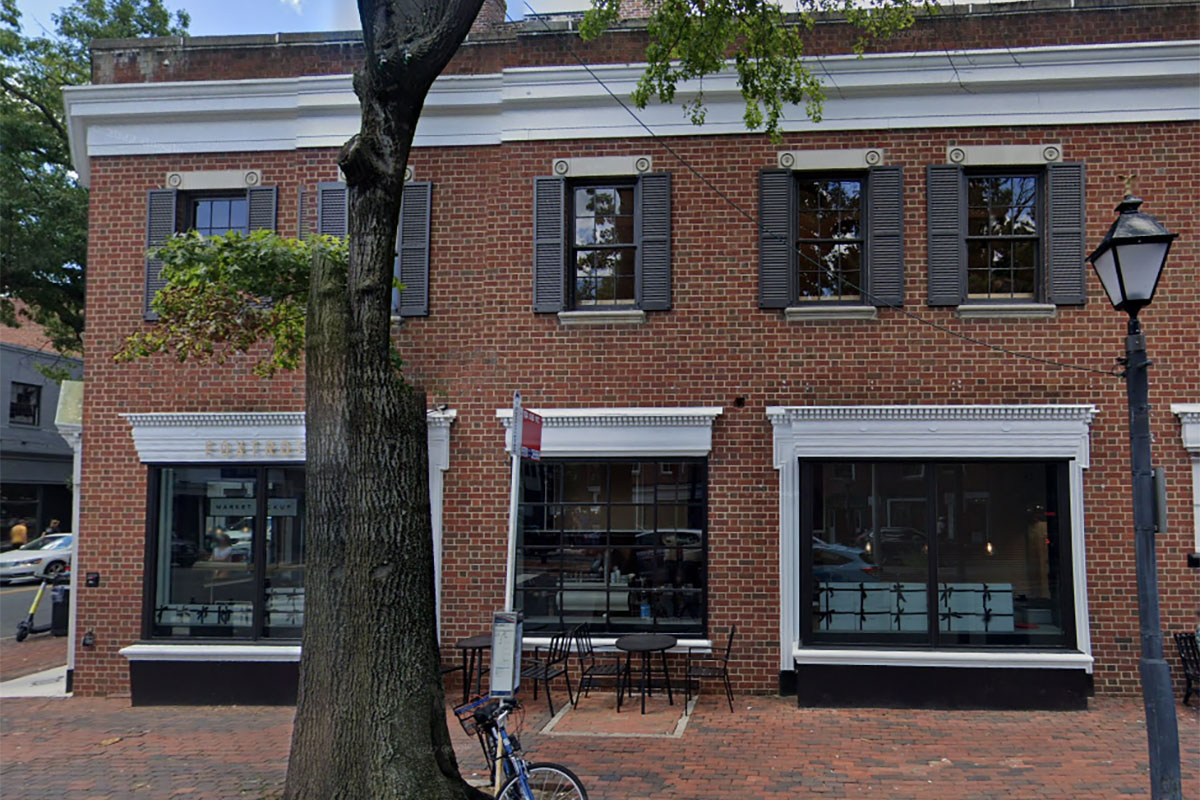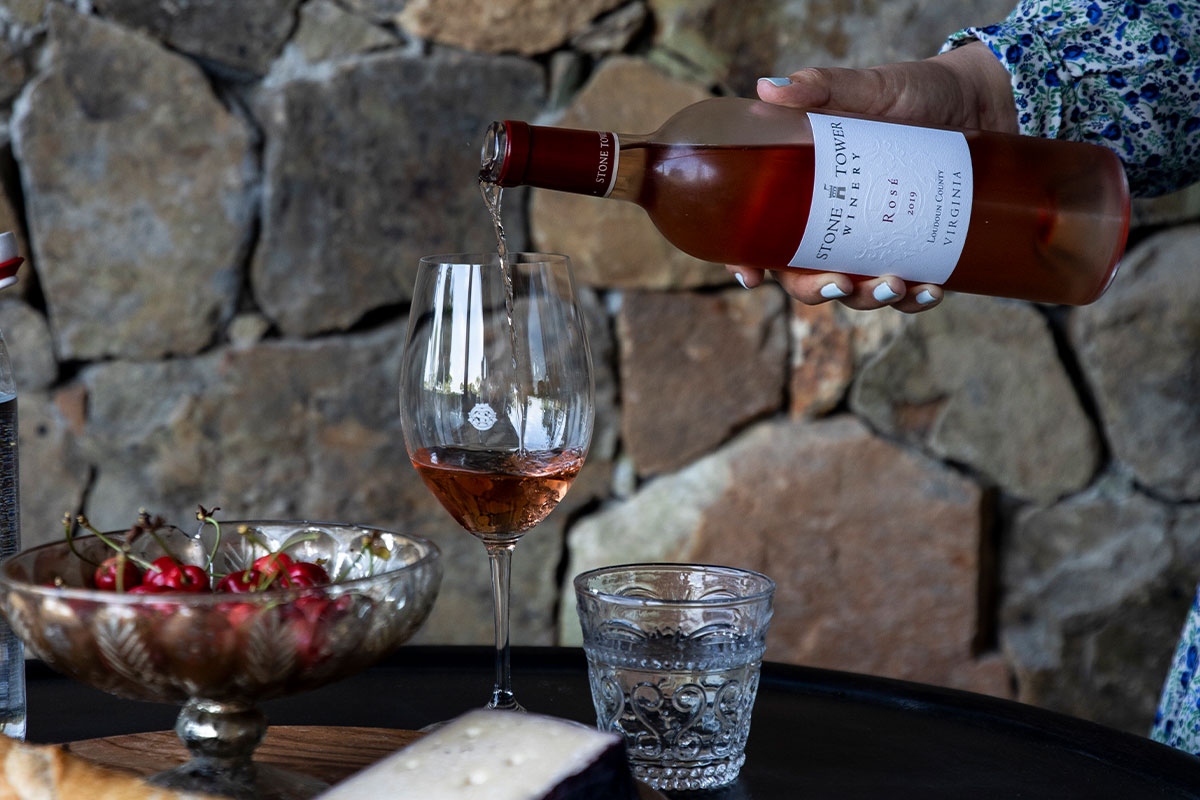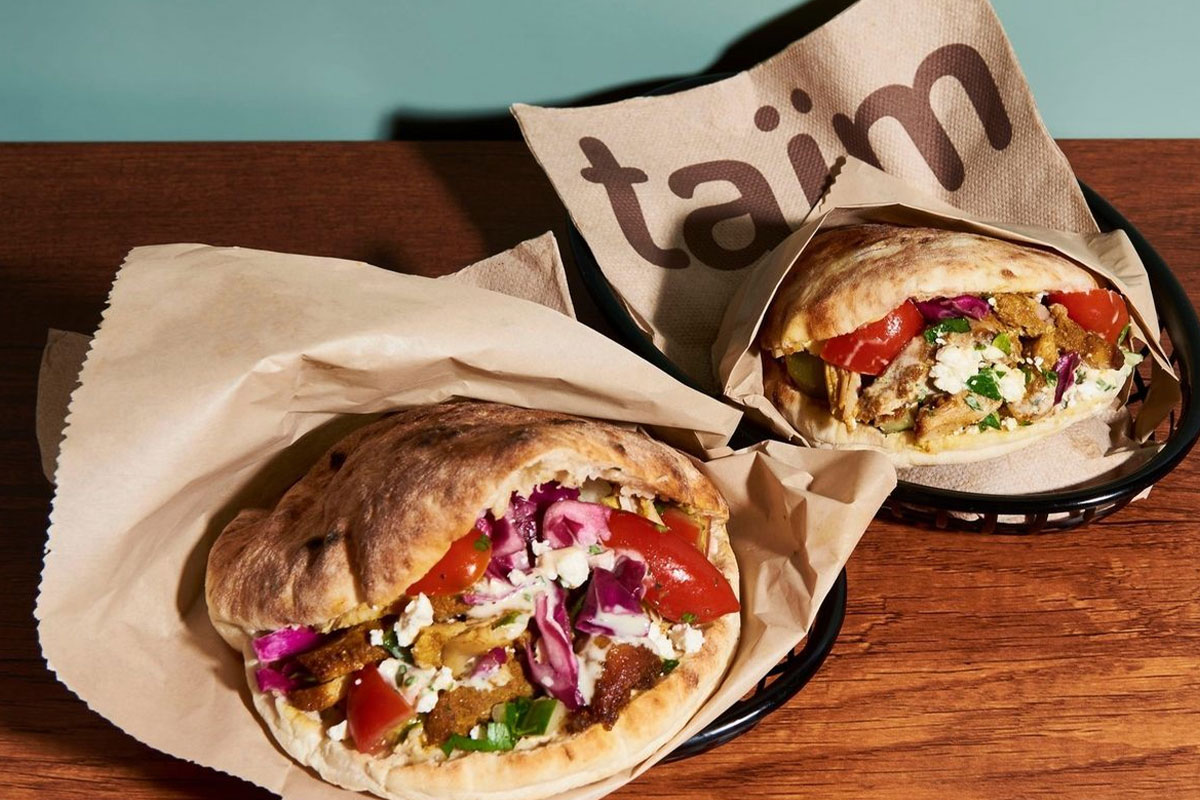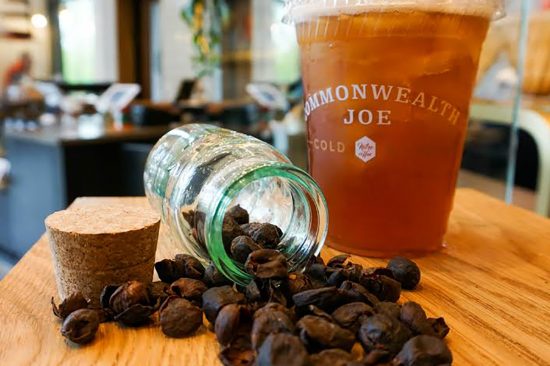
Commonwealth Joe wants to serve you coffee, tea and an Italian soda—all at the same time. While it sounds like an impossible food triad dilemma, the secret lies in the husk.
More specifically, cascara, meaning husk or peel in Spanish, is the dried exterior (skin) of the coffee cherry. The bean is the pit inside the cherry.
Cascara made a splash in the beverage world earlier this year when Starbucks announced the new cascara latte, but cascara drinks have been popular in coffee-growing countries for much longer. In Bolivia, they have sultana, qishr in Yemen and hasara in Ethiopia. These drinks are served as a hot infused tea with varying spices and recipes.
Often discarded, the dried husks are a byproduct of the coffee-making process, but as many new drinkers are discovering, the re-hydrated cherry has a unique taste when brewed like tea. According to Commonwealth Joe, cascara has “about as much caffeine as a cup of decaf,” and “the cherry skin surrounding coffee beans is estimated to have eight times the antioxidants of blueberries.”
Commonwealth Joe’s tea educator Tim Enright, 26, makes a simple syrup with the husk, which he then adds to carbonated water, creating the Cascara Fizz. Enright, who is studying for his masters in paleoethnobotany at George Washington University, describes his infusion as having notes of “plum, sour cherries and red currants.” The cascara is sourced from the family farm of coffee importer Yolima Taborda Rojas, owner of Paisa Coffee LLC, which offers single-origin Colombian coffee. Winchester-based Lone Oak Coffee Company sells cascara tea for those wanting to try it without the fizz. // Commonwealth Joe: 520 12th St. S., Arlington

